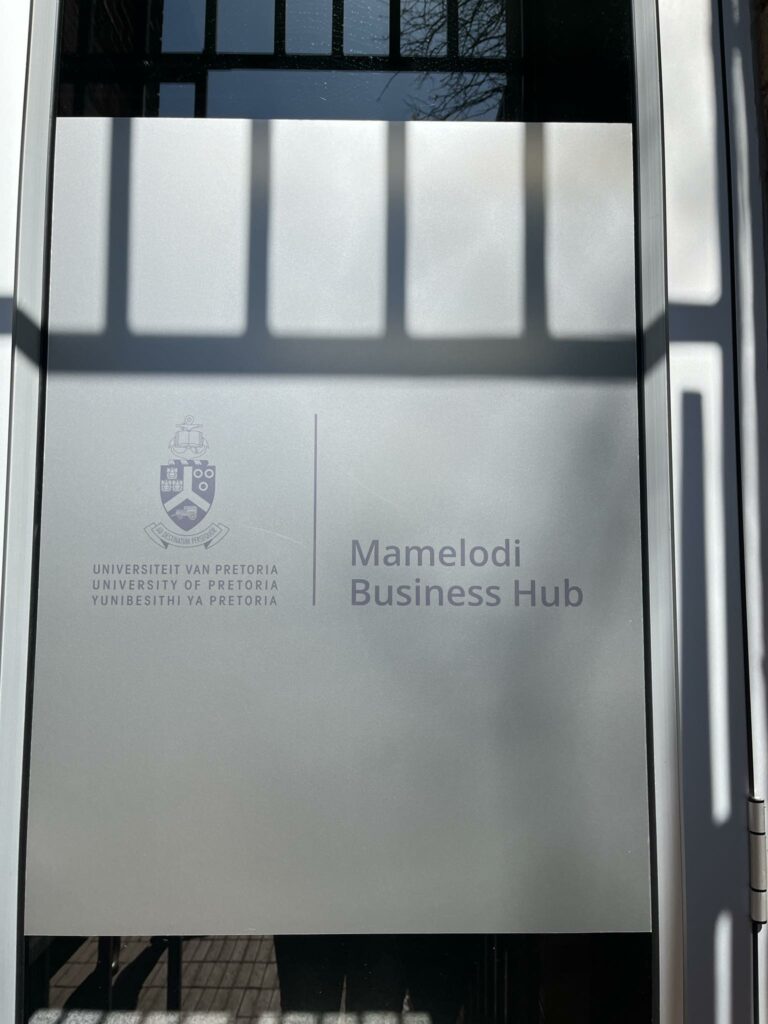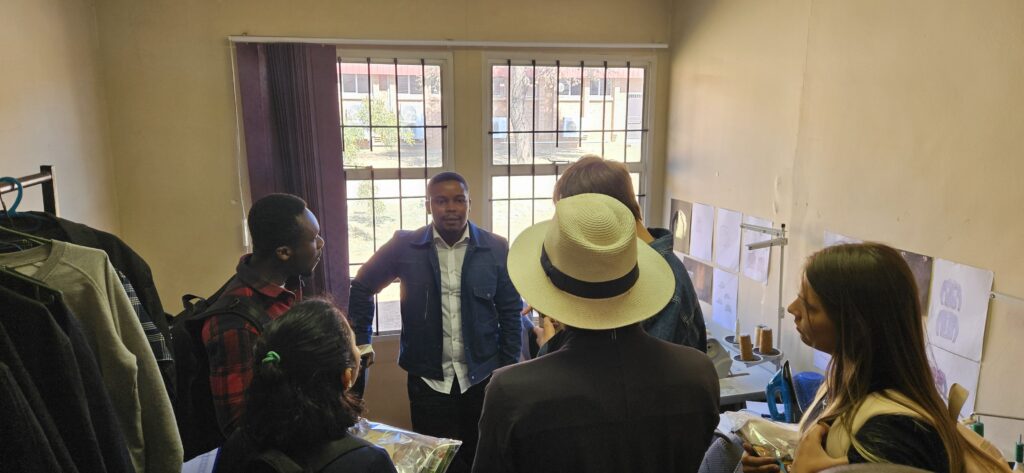By Gianluca Lunau, Adivhaho Mudanalwo & Huynh Thi Thein Nhein
Introduction
The last day of our Transcultural Caravan started with a visit to a township entrepreneur incubator at the University of Pretoria, the Mamelodi Business Hub. This visit gave us the opportunity to gain insights into the Hub’s impact on society through conversations with its entrepreneurs.
Township Entrepreneur Incubator: Mamelodi Business Hub
The Mamelodi Business Hub (MBH) has become a beacon of hope for small business owners and aspiring entrepreneurs in the vibrant township of Mamelodi, eastern Pretoria. Established in 2011 by the University of Pretoria, the Hub aims to empower individuals by enhancing their business success through various resources and support services, all offered free of charge. Their most passionate business consultants have proven resilient and eager to bring the ambitions of entrepreneurs to life. With more than 400 entrepreneurs produced from the hub, their program not only trains them to be entrepreneurs but also valuable community members.

Partnerships and Community Impact
The Hub collaborates with UNICEF, PWC, and the University of Pretoria to provide support to entrepreneurs. Its services range from basic business consulting, training, and regulatory compliance to providing computer classes and workspace facilities. This inclusive approach addresses the educational and infrastructural challenges faced by many in Mamelodi, who often cannot afford higher education.
Stories of Transformation
At the heart of the MBH’s success are the stories of local entrepreneurs who have leveraged its resources to transform their ideas into thriving businesses, with some of them currently suppliers of big corporations. The Transcultural Student Group had an opportunity to hear some of the transformation stories from the entrepreneurs:
• Dikeledi: A participant in the Mamelodi entrepreneur program sources make-up products from Nigeria to sell in South Africa. Inspired by the unique climate-adapted products, she envisions a mobile beauty bar, providing beauty services and creating jobs in the process. Despite being an entrepreneur, her personal growth through the entrepreneurial program made her form an NPO which helps disadvantaged schools and empower society.
• Koketso: The founder of Republican Ark, a clothing brand, Koketso’s journey began with the agricultural plant production program at MBH. With support in branding, business modeling, and access to workspace, Koketso turned his bedroom sewing venture into a successful clothing line, winning a business contest that enabled him to scale production.
• Other Entrepreneurs: Many others have built and structured their business ideas through MBH’s workshops and training programs. These stories highlight the significant gap in traditional education, which often prioritizes worker roles over entrepreneurial skills, and the vital need for local support in fostering a dynamic business environment.

Towards a Sustainable Future
The Mamelodi Business Hub is more than a training center; it’s a catalyst for change. By supporting local entrepreneurs, the Hub contributes to local economic development, enterprise development, and broad-based black economic empowerment (BBBEE). It nurtures small, micro, and medium-sized enterprises (SMMEs) and promotes a thriving local business ecosystem.
Entrepreneurship holds the key to unlocking sustainable futures, particularly in emerging economies. Initiatives like the Mamelodi Business Hub exemplify how targeted support and resources can empower individuals, promote local economic development, and align entrepreneurial efforts with sustainable development goals. As we navigate the challenges of the 21st century, fostering a robust entrepreneurial ecosystem is essential for creating a dynamic, diverse, and thriving local business environment that benefits everyone.
